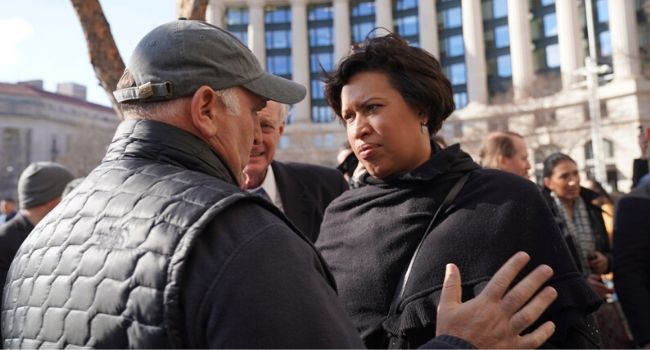
D.C. City Leaders Work To Keep Students Safe During School Closures
With schools and virtually all youth programming closed through late April, some D.C. violence prevention workers concerned about the possibility for kids to get into trouble.
- By Haley Samsel
- March 25, 2020
The responsibility to keep kids safe does not end when schools close, whether that’s due to natural disasters or the current coronavirus pandemic spreading across the globe. Community leaders in Washington, D.C. know that fact well, as they work to ensure that local students remain safe until schools reopen, at the earliest, on April 24.
Mayor Muriel Bowser and D.C. Police Chief Peter Newsham said that they do not think that children being out of school will inevitably cause the crime rate to spike, The Washington Post reported. But depriving students of healthy outlets and extracurricular activities, particularly sports, can have far-reaching consequences for young people, the leaders acknowledged.
“I hate to always go to children being home means that children will be violent,” Bowser said at a news conference on Friday, according to the Post. “So we give them the benefit of the doubt, but we are also making sure that all of our police resources are being deployed in ways that are productive.”
Violent crime fell 9 percent between March 12 and March 22, the time period covering the first days of school closures, when compared to the same period in 2019. That’s an encouraging sign for local leaders, but several fear that the lack of youth programming that is usually present during the summers for students will lead them to potentially act out.
Some “violence interrupters” working with the D.C. attorney general’s “Cure the Streets” program say that they have seen kids from rival neighborhoods interacting and arguing now that they are out of school, increasing the potential for violence.
“Everyone is concerned about safety,” said Boye Sofidiya, a violence interrupter in D.C. who has brokered arguments between students. “A lot of the kids who don’t see each other during the day are starting to interact … This is going to be a test of all the settlements of disagreements. We hope they hold up, and we think that they will.”
Jimmie Jenkins, who operates a basketball league in the southeast part of the city, told the Post that his coaches are reaching out to kids with positive messages, encouraging their players to list their goals and use this time to research their college options. Community service is also an option for his players, he said.
“If you are a kid and sports is all you know to keep you out of negative things, giving back to the community can be another vehicle,” Jenkins said. “It’s a sense of empowerment.”
The public school district is conducting outreach as well, with staff members reaching out to students at least twice a week by phone, email or text. In addition, the D.C. attorney general’s office is providing resources via social media for students who may be experiencing violence at home.
About the Author
Haley Samsel is an Associate Content Editor for the Infrastructure Solutions Group at 1105 Media.